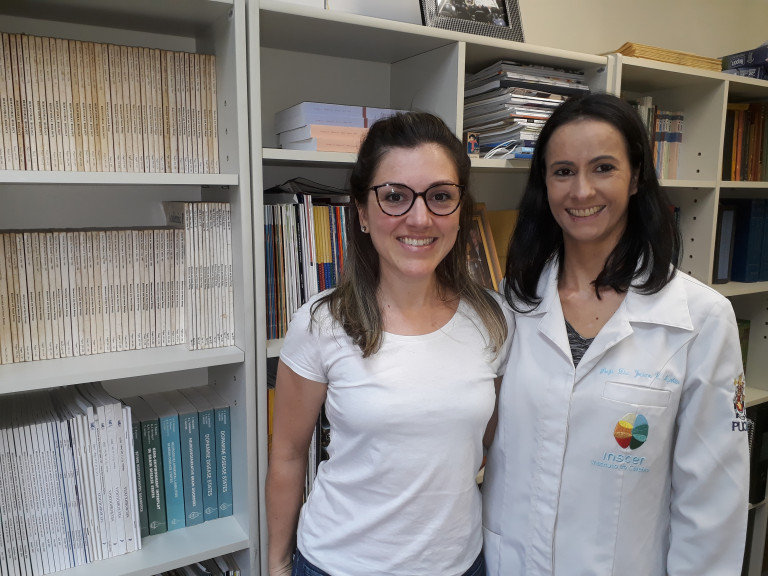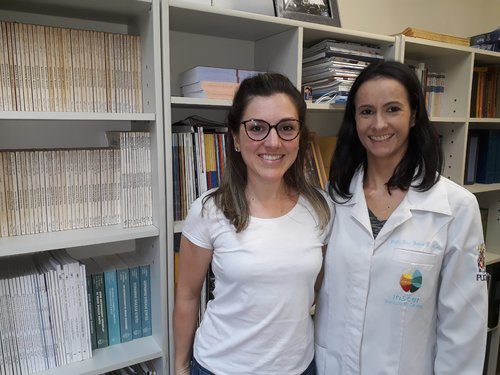Article about memories of fear is published in an international magazine
A research project carried out by the Memory Center of the Instituto do Cerebro do RS finds that the presence of a family member after a traumatic memory alleviates the effects of fear, and can therefore assist in the extinction of an aversive memory. The research has just been published in the international journal Proceedings of the National Academy of Sciences , in the United States.
The author, Clarissa Farias Penha, is a doctoral student of the profa. Jociane de Carvalho Myskiw, in the course of Biomedical Gerontology , at PUCRS School of Medicine. According to her, several studies around the world indicate the participation of different brain regions in the consolidation of extinction memory, such as the prefrontal cortex, the CA1 region of the hippocampus and the basolateral amygdala.
However, the group's findings suggest that the consolidation of extinction with the presence of social support (a family member, a friend) depends on the prefrontal cortex, and not on the CA1 region of the hippocampus. "We observed that the cellular mechanisms and brain structures involved in extinction with the help of a family member differ from mechanisms already known in the extinction carried out without a family member," says Clarissa. She explains that the extinction of a fear memory is not to erase it, but to associate it with a new memory.
These results indicate that the presence of a family member (called co-specific) in exposure therapy can assist in the treatment of phobias, anxieties, post-traumatic stress, among others. "It is known that the perception of a lack of social support can be an aggravating factor in the symptoms of severe phobias such as PTSD, so our study suggests that the presence of a family member in exposure therapy may help in the treatment of phobias, anxiety and PTSD" , says Clarissa.
Follow the article link: https://www.pnas.org/content/116/5 /1765.abstract



